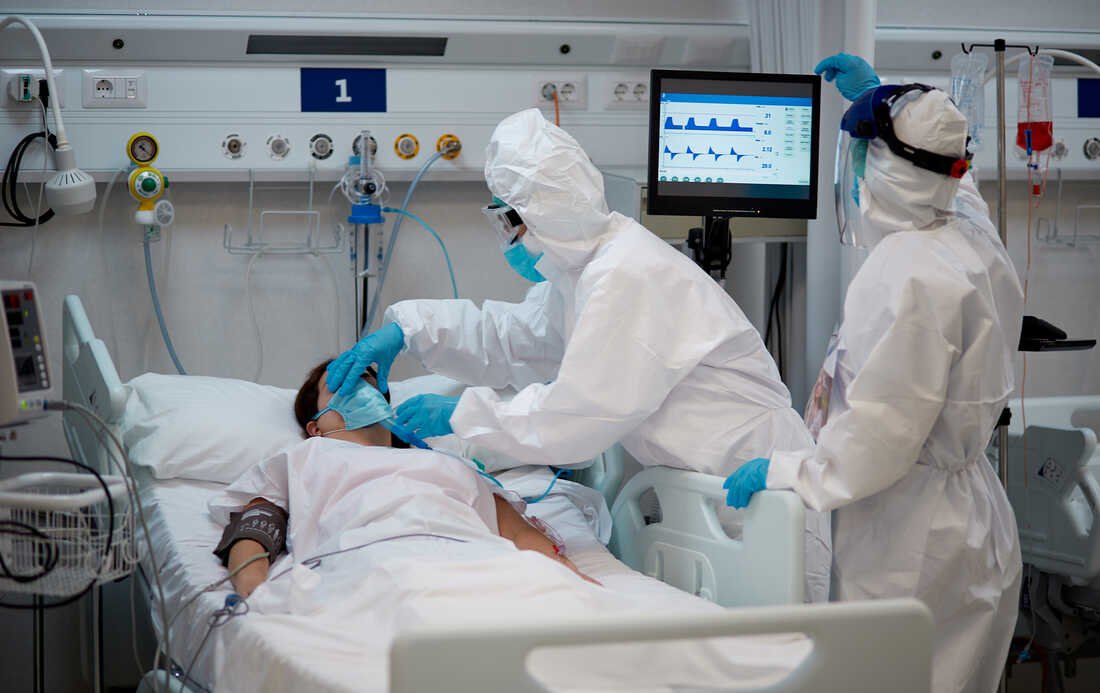Mechanisms of cognitive deficits after COVID-19
A recent study led by Stanford University School of Medicine indicated that mild respiratory SARS-CoV-2 infections can cause cognitive deficits in humans.
To date, there have been over 650 million documented COVID-19 cases caused by the severe acute respiratory syndrome coronavirus 2 (SARS-CoV-2) infection. Over 100 million of these cases come from the United States alone.
Although common symptoms of COVID-19 include fever and loss of taste, neurological symptoms are quickly emerging, with approximately one in four COVID-19 survivors reporting persistent cognitive impairment. This cognitive dysfunction is predominantly characterized by impaired information processing, weak memory and lack of attention or concentration.
This syndrome of cognitive impairment, colloquially known as “COVID brain fog”, is one of the defining aspects of “long COVID” preventing people from restoring their previous levels of mental function. Considering the scale of the COVID-19 pandemic, COVID brain fog could prove to be a major public health issue.
While severe COVID-19 could cause organ failure and other devastating symptoms, even mild COVID could produce an adverse neuroinflammatory response.
“We found that even mild COVID can cause prominent inflammation in the brain that dysregulates brain cells and would be expected to contribute to cognitive impairment,” said Dr. Michelle Monje, professor of neurology and neurological sciences at Stanford University.
Seeking to uncover the underlying mechanisms causing these neurobiological effects, a team of researchers led by Dr. Anthony Fernández-Castañeda, a postdoctoral scholar at Stanford University, conducted the study using mice with mild respiratory SARS-CoV-2 infection and postmortem human brain tissue. The mice model results showed that even though no SARS-CoV-2 was present in the brain, signs of neuroinflammation and elevated levels of chemokines, specifically C-C motif chemokine 11 (CCL11), caused hippocampal microglial reactivity and impaired neurogenesis.
Increased microglial reactivity transforms microglia, which normally maintain homeostasis of the central nervous system, into an activated neurotoxic state, impairing neural network structure and function due to the loss of myelin: a fatty coating that insulates neurons to speed up transmission. Furthermore, elevated levels of CCL11 contribute to cognitive impairment by limiting neurogenesis, a step necessary for memory formation.
Fernández-Castañeda and his team also examined human brain tissue samples from 63 patients with long COVID. The 48 patients who reported cognitive symptoms displayed similar higher levels of CCL11 compared to those who lacked the symptoms.
Despite these findings, it is still too early for researchers to draw a clear line between COVID-19 and cognitive impairment when diagnosing patients.
“Covid-related brain fog is difficult to diagnose and to separate from other reasons for the symptoms in an individual patient because neurocognitive longitudinal data for patients are rarely available,” said Dr. Varun Venkataramani, a neuroscientist at the Heidelberg University Hospital.
For example, the Stanford study drew pathobiological parallels between COVID brain fog and cognitive impairment syndromes following cancer therapy, also known as “chemo brain”.
“The overlap between what happens in COVID-19’s cognitive aftermath and chemo brain, as it’s colloquially known, could be good news for patients because it may speed research on treatments,” said Monje. “The exciting message is that because the pathophysiology is so similar, the last couple of decades in cancer therapy-related research can guide us to treatments that may help COVID brain fog.”
Researchers have already found drugs that could target possible cognitive dysfunction caused by COVID-19 such as Pexidartinib, which has been approved by the Food and Drug Administration for the depletion of microglia. However, these medications may still not be enough.
“While there are many similarities to cognitive impairment after cancer, there are probably differences, too,” Monje said. “We need to test any potential therapies explicitly for COVID.”

